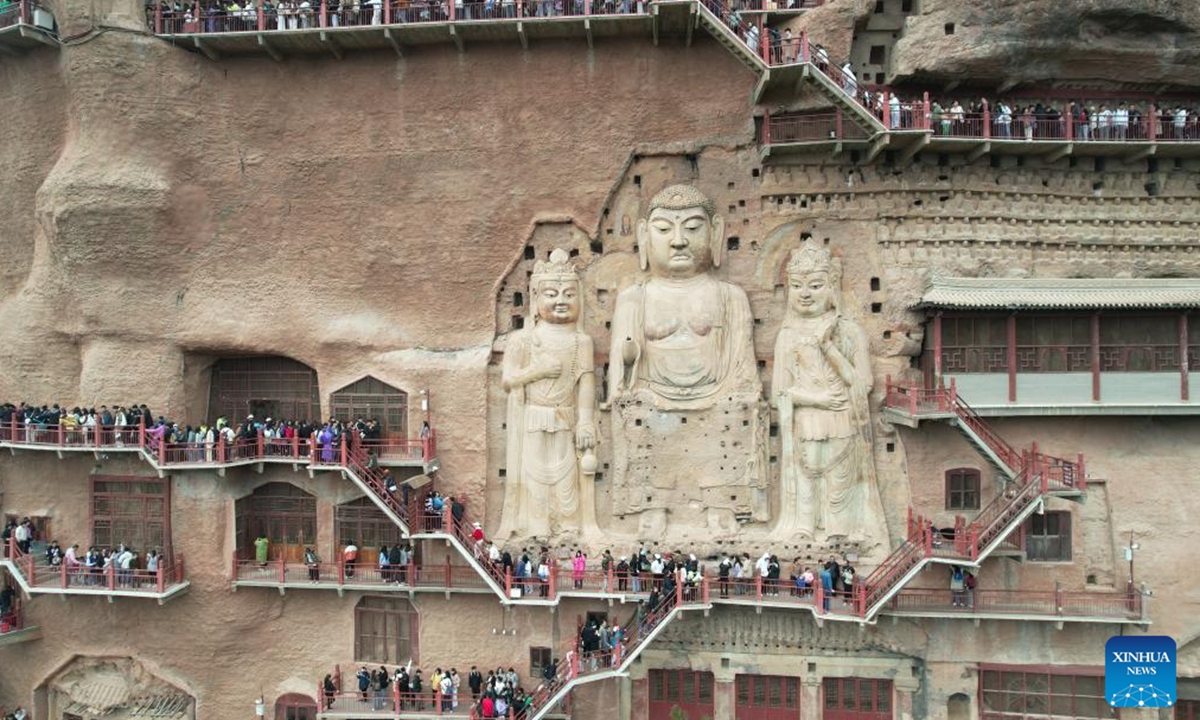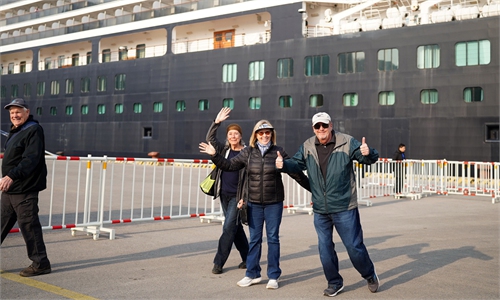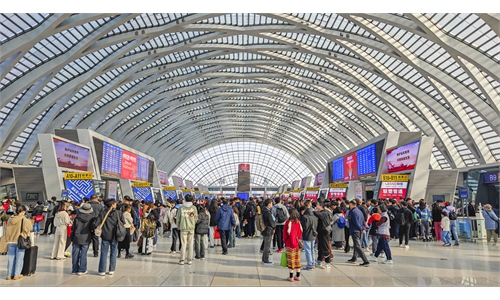The memories of holiday travel should not only be 'the crowds': Global Times editorial

A drone photo taken on April 5, 2024 shows tourists visiting the Maiji Mountain Grottoes in Maiji District of Tianshui City, northwest China's Gansu Province. Photo: Xinhua
Tourists crowded scenic spots in Tianshui of Gansu Province, Jinan of Shandong Province, and Nanjing of Jiangsu Province in China. The surge in tourism during the Qingming Festival holidays has left a deep impression on people. Data from various sources shows that the number of tourists, consumption amount, and cross-regional flow of people are all higher than before the COVID-19 pandemic. The booming tourism during the Spring Festival and the Qingming Festival holidays has made people generally optimistic about tourism during the upcoming May Day holidays and the entire year.
The continuous tourism boom in many places is in line with people's general expectations. This is not only due to the rebound effect after the epidemic, but more because China has entered a stage of development where the urban infrastructure construction has been basically completed with the growth of upstream manufacturing industry, laying a solid foundation for the vigorous development of characteristic tourism and innovative tourism in different cities. At the same time, tourism has become a habitual consumption for more and more people, especially young people, showing strong inertia and a "snowball" effect. Data shows that the 18-25 age group accounts for more than 20 percent of the tourist population on a travel booking platform, making it the most active group of tourists. The gathering effect of social platforms has created opportunities for the emergence of various new "internet-celebrity" cities.
Tourism is a unique industry with a long industrial chain that does not always directly reflect its contribution to tax revenue and GDP in many places, but it has long-term, implicit huge effects - boosting consumer confidence and injecting vitality to the entire society. Continuously improving the tourism industry is not only beneficial for generating revenue in local areas, but also has positive effects on stimulating consumption, upgrading the manufacturing industry, optimizing urban management, and enhancing development confidence. Therefore, local governments have a duty to be proactive in this regard.
At present, there are often many complaints behind the bustling tourism during each holiday, which are mainly due to the fact that the reception capacity of various attractions is approaching or exceeding the limit. It is normal for popular attractions to be crowded with people. For most tourists, the first thing to do when arriving a tourist destination is to visit iconic and historical cultural attractions, which is the same all over the world. However, how to make tourists more comfortable and satisfied in this process, and how to make the tourism industry more sustainable, are still big problems that require optimization and improvement in local places.
In the face of a possible normalization of tourism wave in the future, first, it is essential for all regions to strengthen their overall service awareness, making consumers feel sincerity and goodwill from service providers as much as possible. In fact, many cities that have recently unexpectedly become popular, such as Zibo and Harbin, have achieved success due to their "sincerity" and "authenticity." Making management more down-to-earth and creating cities that exude warmth and vitality are crucial for attracting tourists.
Second, the management authorities of tourist destinations need to explore effective ways to divert tourists, utilizing various new technologies, as well as vigorously promoting night tourism and all-for-one tourism. For example, they can moderately extend the operating hours of popular scenic spots and cultural landmarks, and offer more off-the-beaten-path but high-quality options alongside popular tourist spots.
Third, in the long run, the implementation of a paid vacation system needs to be more strongly enforced, which is the fundamental solution to avoid excessive concentration of travel. In recent years, the central government has continuously issued documents requiring increased efforts to implement the paid vacation system, encouraging staggered vacations and flexible working hours, but the implementation effect has not been ideal. Policymakers in various regions need to introduce more effective measures to encourage institutions and enterprises to implement the paid vacation system, and there should be corresponding punitive measures for those who do not implement it effectively. This is not only a need to promote consumption but also a requirement to safeguard the right of workers to rest.
There is no one-size-fits-all solution to the problems of overcrowding during holidays, and it is not easy to solve. China is a country with a population of over 1.4 billion, and such a large population traveling at the same time is unimaginable in any other country in the world. However, China is such a country, always facing unimaginable difficulties and overcoming them one by one in the process of progress. Behind this, the strong resilience of China's economy and society is playing a huge role. We also look forward to tourism and vacations entering more households in the future, so that more people can truly enjoy the carefree and comfortable feeling of "just go" and have more beautiful memories beyond the crowd.


